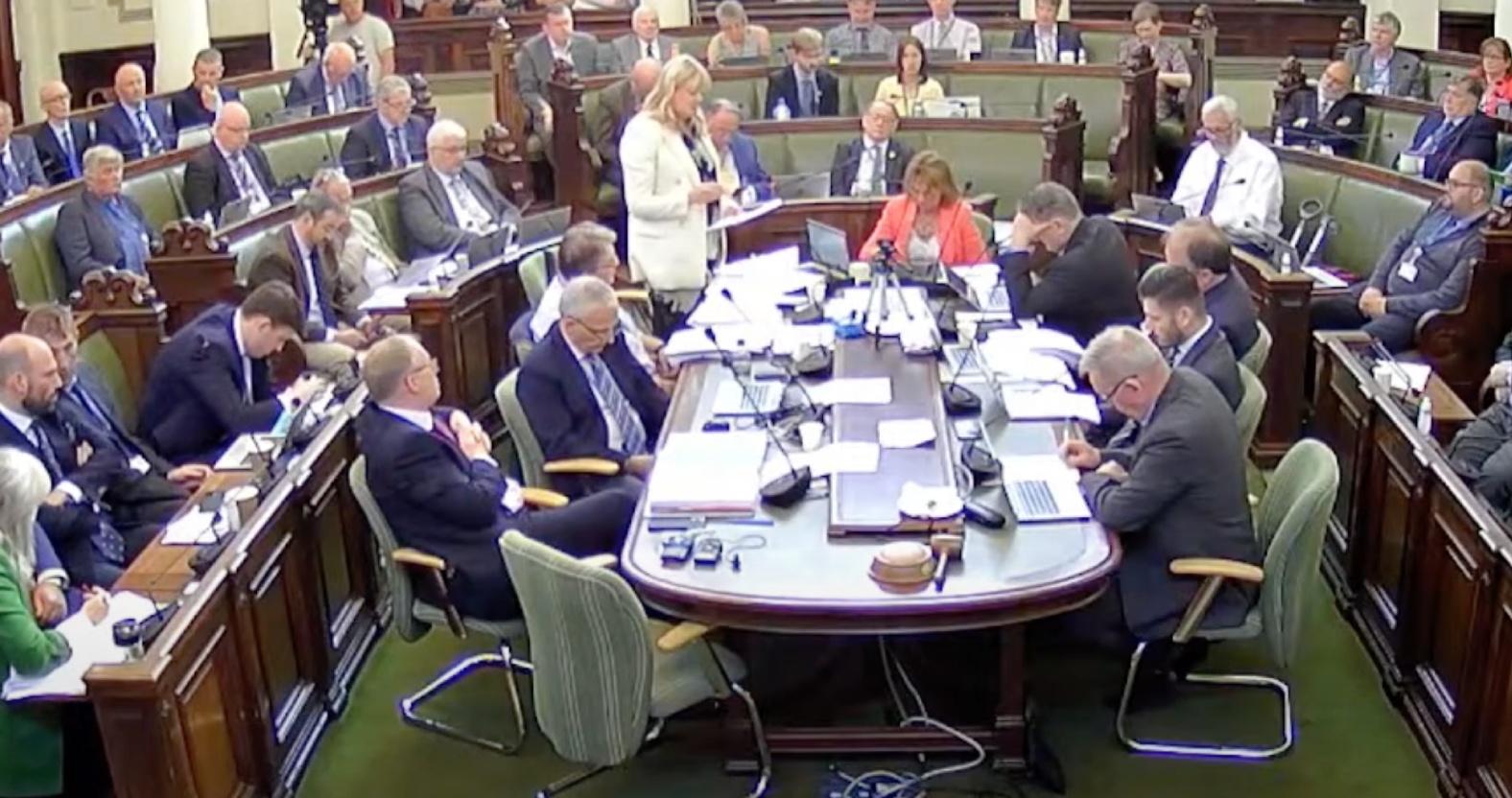Subscribe to trusted local news
If you are accessing this story via Facebook but you are a subscriber then you will be unable to access the story. Facebook wants you to stay and read in the app and your login details are not shared with Facebook. If you experience problems with accessing the news but have subscribed, please contact subscriptions@thestrayferret.co.uk. In a time of both misinformation and too much information, quality journalism is more crucial than ever. By subscribing, you can help us get the story right.
- Subscription costs less than £1 a week with an annual plan.
Already a subscriber? Log in here.
26
Jul 2024
Free transport restricted to nearest school in North Yorkshire

North Yorkshire Council has approved controversial cuts that will limit free transport for pupils to their nearest school.
Councillors voted to reduce the service to its statutory minimum in a move it hopes will contribute £4.2 million towards £48 million savings over the next four years.
Councillors warned further cuts to services are expected to be announced in the months ahead due to the bleak financial outlook.
The annual cost of providing school transport has more than doubled since 2018/19 to £51 million and is now the Conservative-run council's third-largest source of expenditure behind adult social care and waste management, a full council meeting heard on Wednesday.
The new home-to-school travel policy, which was adopted by 48 votes to 26, will be phased in over seven years, meaning it will start to affect new applications from September. This September’s Reception and Year 7 cohorts are not affected.
Liberal Democrats, independents and Green Party councillors lined up to criticise the new policy, with many questioning whether it would actually save money.
Cllr Bryn Griffiths, the Lib Dem leader on the council, said it was underpinned by “shaky data” and Arnold Warneken, the Green Party representative for Ouseburn, said the council was “making spurious claims”.
Matt Walker, a Lib Dem representing Knaresborough said there were “far too many unanswered questions and unknowns” while party colleague Cllr Monika Slater, who represents Bilton Grange and New Park, said:
Why do we not care about our children’s education? It is unbelievable to me. Education should be the first thing we are thinking about and the last thing we should cut.
Independent group leader Cllr Stuart Parsons said the policy would “seriously impact on the communities we are meant to serve” and Kevin Foster, who represents Hipswell and Colburn for the Green Party, predicted costly appeals “will come flooding in”.
Cllr John McCartney, the Independent for Osgoldcross, even described the policy as “home to school apartheid” because of the impact it would have on families in rural areas. He added:
You are being biased against not by race or gender but by where you live.

A North Yorkshire school bus. Photo: North Yorkshire Council.
Local Tories defend changes
Two Harrogate Conservative councillors were among those defending the new approach.
Cllr John Mann, who represents Oatlands and Pannal, said measures to help low income families were in place, adding:
The home-to-school transport budget has been overspent for a number of years and this needs to be addressed.
Michael Harrison, a Conservative who represents Killinghall, Hampsthwaite and Saltergate, said the new policy was undoubtedly underpinned by some assumptions and modelling but added:
Opponents to the proposed changes will highlight that they feel the assumptions that have been are all wrong. But we have to accept that their assumptions are all right.
Cllr Harrison, who sits on the ruling executive, warned there would be “more difficult decisions to come” as the council sought to balance the books.
Cllr Annabel Wilkinson, the executive member for education, learning and skills, said it was “not a welcome decision or an easy one” but added the cost of school transport was significant and rising.
The authority’s deputy leader, Cllr Gareth Dadd, said:
We currently provide some transport services which go beyond our statutory duty. Increases in the cost of fuel, transport and insurance mean that we have to bring the policy into line with the Department for Education guidance and target resource at those who most need it. If we do nothing, then the rising cost of home to school travel could have a crippling effect on the other services we must deliver by law.
We understand the concerns from parents and carers around transporting children and young people to the school of their choice, as well as concerns if siblings will attend different schools due to travel costs. However, parents and carers still have a choice as to where to send their children. It is important for them to now factor in travel costs if they choose a school that is not their nearest school.
0